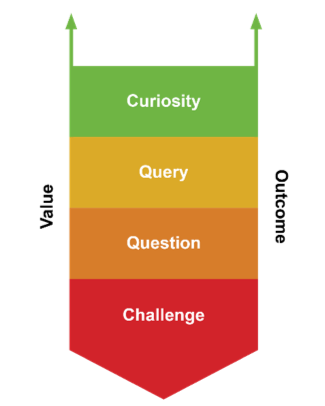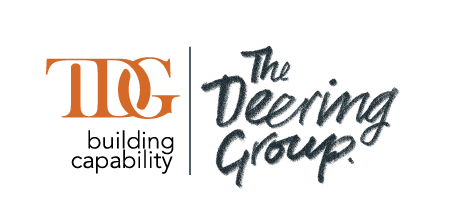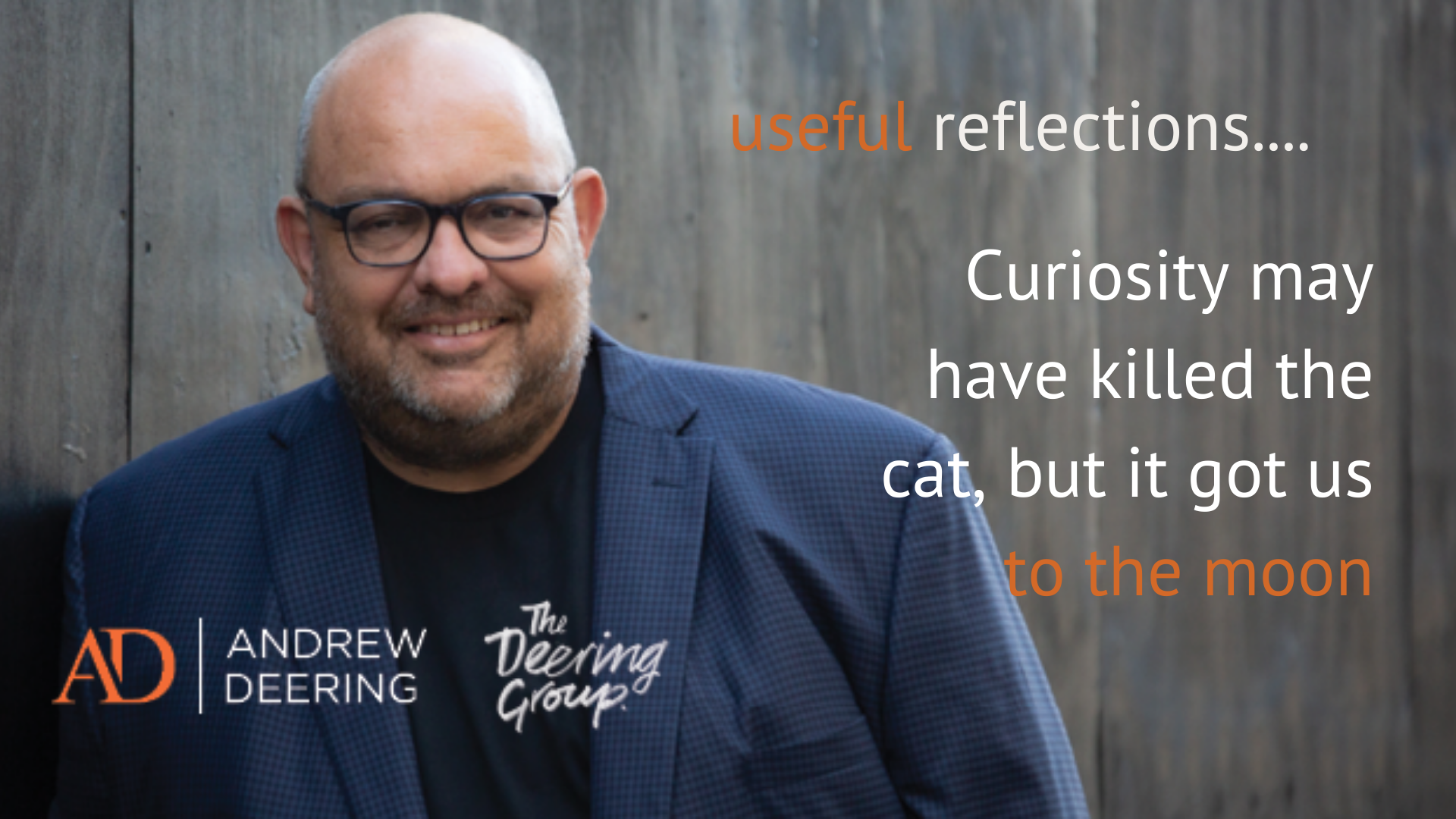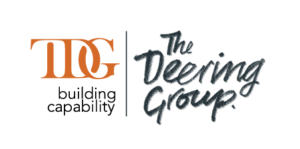Curiosity is lying in wait for every secret.
Ralph Waldo Emerson Tweet
I remember as a child asking the age-old question, “Why?”
We seem to be born with an innate curiosity and a need to understand our world. The world is a mysterious place when you’re a child and you are eager to crack its every secret.
Curiosity is defined as “a strong desire to know or learn something”. At the heart of this definition is the use of the word “why”. It allows us to enquire, explore and be curious.
One of childhood’s great tragedies is discovering that “Why?” doesn’t always elicit a useful response. Parents often roll their eyes at this constant enquiry and give a flippant answer for a moment’s peace. I know I have been guilty of doing this myself. Eventually, children learn to stop asking why and they struggle to relearn the skill.
Yet, when you look inside a child’s world, the TV shows, movies and books are all geared towards expanding their imagination and curiosity. Play School, Curious George and Miss Peregrine’s Home for Peculiar Children are just a few examples of children being taken on a colourful and engaging journey of learning, discovery and fantasy. Often, children consume these products, but do we encourage them to apply the experiences and learnings?
Do we encourage a sense of curiosity or do we tell ourselves that “curiosity killed the cat”?
“I think, at a child's birth, if a mother could ask a fairy godmother to endow it with the most useful gift, that gift should be curiosity.
Eleanor Roosevelt Tweet
While curiosity may have killed the cat, it also got us to the moon.
In the movie, Hidden Figures, the curiosity of NASA’s team of female African-American mathematicians led to the success of the US space program. It was their curiosity, their eagerness to experiment, their determination to understand and achieve that drove their incredible calculations for NASA’s space flight trajectories.
But in an age when curiosity has never been more easily satisfied, I think we’ve lost our thirst to discover and understand. We can find an answer to almost any question we have thanks to online search engines and Wikipedia. Yet, when it comes to the way we engage with each other and our world, we lack that childlike curiosity and inquisitiveness. After all, we have answers!
Because of the complexity and busy-ness of life, we are quick to find an answer. We race to the solution rather than taking the time to explore and understand. As Stephen Covey says in his book, The 7 Habits of Highly Effective People, we must “seek first to understand, then to be understood”. In other words, communication involves listening attentively and genuinely wanting to understand a person or situation – that is, being curious.

There is a pathway to the answers we seek. At the bottom of this pathway, the low path, we challenge. We demand something to be proven or justified. When we approach a problem, person or situation this way, we lack empathy. We are often driven by ego. It’s an aggressive and often unhelpful mindset and, in my view, offers the least value and produces the lowest-quality outcome.
The next level is to question. When we question a person or situation, we display a level of scepticism and defiance. This puts distance between ourselves and our ability to gain a true understanding of a person or situation.
The third level is to query. This is less of an interrogation and is more empathetic. We are beginning the journey to seek to understand.
But the best outcome arises from the top level – curiosity. This is when we are genuinely interested. We are eager to understand, we have empathy and we are open to all possibilities. By being curious, we create the most amazing outcomes and can deliver the best value for everyone involved.
When we think about the way we enter a conversation or approach a problem, do we do so with an open mind and heart? Do we have a deep sense of curiosity? Are we open to others’ points of view, experimentation and the unexpected? Or do we simply want to challenge in a way that can be negative and confrontational?
If you find yourself taking the low path, I challenge you to make the shift, to open your mind and heart, to be curious and find a truly rich and valuable outcome.
Be kind, be true, be well, be you.


